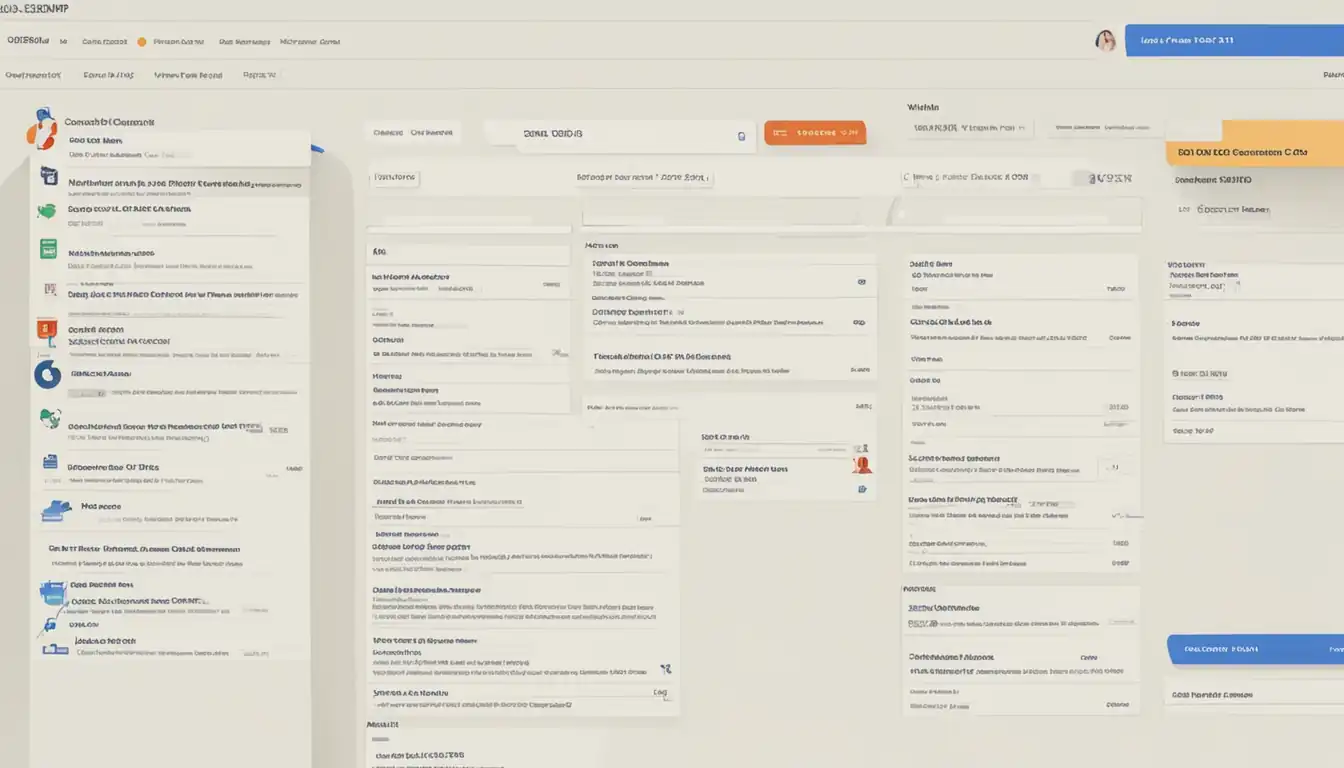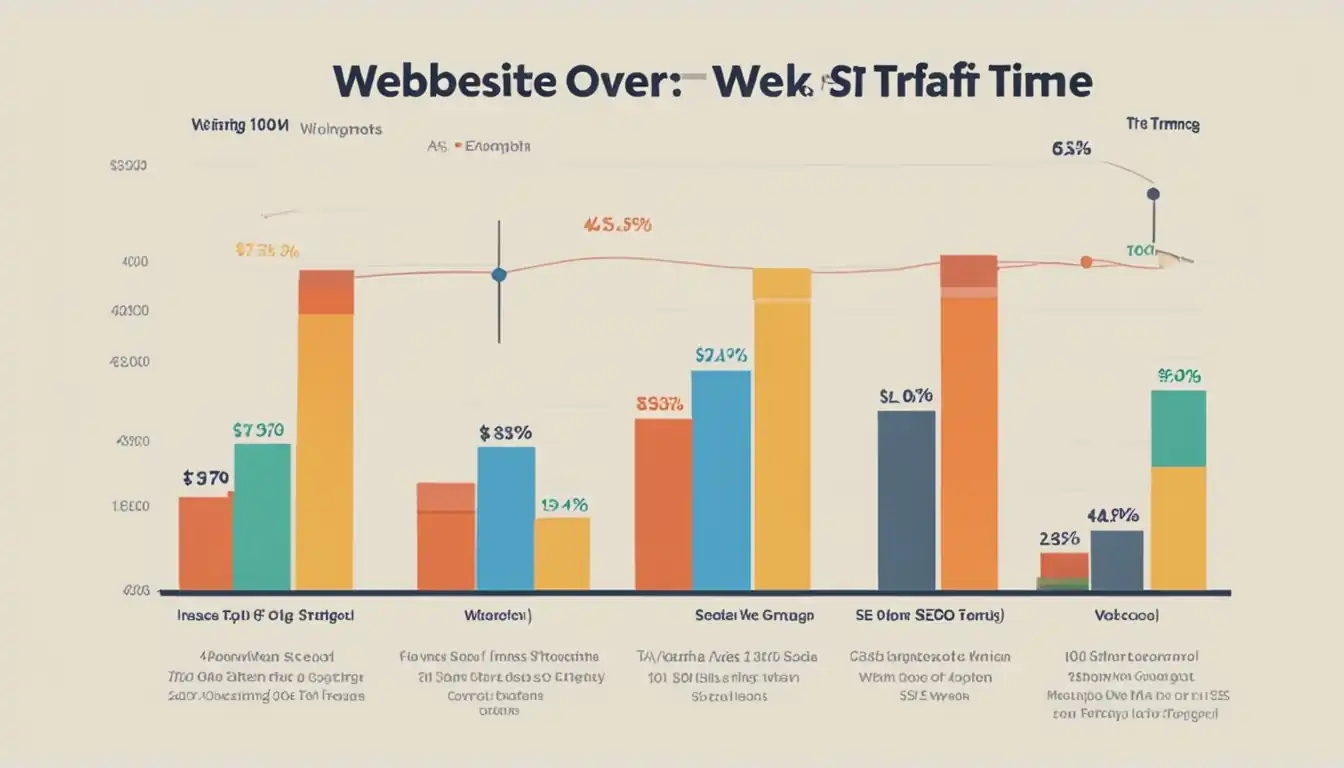SEO Strategies for Early Stage Businesses: Building Your Foundation for Online Success

Are you an early stage business looking to establish a strong online presence? Look no further! In this post, we'll dive into the world of SEO strategies to help you build a solid foundation for online success. From understanding the basics to avoiding common pitfalls, we've got you covered.
Setting the Stage for SEO Success
When it comes to establishing a strong online presence, search engine optimization (SEO) is a crucial component. Understanding the basics of SEO is the first step in setting the stage for success. By aligning SEO strategies with your business goals, you can maximize the impact of your online efforts and drive organic traffic to your website.
Understanding SEO Basics
Before diving into the intricacies of SEO, it's important to grasp the fundamental principles that govern search engine rankings. SEO is the process of optimizing your website to improve its visibility in search engine results. This involves a combination of on-page and off-page tactics, including keyword research, content creation, link building, and technical optimization. By understanding these basics, you can lay a solid foundation for your SEO strategy.
Aligning SEO with Your Business Goals
While SEO is essential for improving your website's visibility, it's equally important to align your SEO efforts with your overall business objectives. Whether your goal is to increase sales, generate leads, or enhance brand awareness, your SEO strategy should be tailored to support these goals. By aligning SEO with your business goals, you can ensure that your efforts are focused on driving meaningful results for your organization.
Keyword Research: The Cornerstone of Your SEO Plan
When it comes to creating a successful SEO strategy, keyword research is the foundation upon which everything else is built. Identifying the right keywords is crucial for attracting the right audience to your website and improving your search engine rankings.
Identifying Your Target Audience
Before diving into keyword research, it's essential to have a clear understanding of your target audience. Who are they? What are their interests, needs, and pain points? By knowing your audience, you can better tailor your keyword strategy to attract the right visitors to your site.
Tools and Techniques for Effective Keyword Research
There are numerous tools and techniques available to help with keyword research. From free options like Google Keyword Planner and Ubersuggest to paid tools like SEMrush and Ahrefs, there is no shortage of resources to aid in identifying the best keywords for your website. Additionally, techniques such as competitor analysis, long-tail keyword research, and user intent analysis can provide valuable insights into the most effective keywords for your SEO strategy.
Remember, effective keyword research is not just about finding the most popular keywords, but rather identifying the most relevant and valuable keywords for your specific audience and business goals.
When it comes to on-page SEO, one of the most crucial elements is crafting quality content that resonates with your audience. This means creating valuable, informative, and engaging content that not only attracts visitors to your site, but also keeps them there. Quality content is the foundation of a successful SEO strategy, as search engines prioritize websites that provide valuable information to users.
In addition to quality content, meta tags and descriptions play a significant role in on-page SEO. These elements provide search engines with information about the content of your website, helping them understand what your site is about and how it should be indexed. Meta tags and descriptions also appear in search engine results, influencing whether users click through to your site. Therefore, it's essential to optimize these elements with relevant keywords and compelling language to attract more traffic to your website.
When optimizing your website's DNA, focus on creating high-quality content that resonates with your audience, and pay attention to meta tags and descriptions to improve your site's visibility and click-through rates. These elements work together to enhance your on-page SEO and drive more organic traffic to your website.
Technical SEO: Ensuring a Solid Infrastructure

When it comes to technical SEO, one of the most crucial aspects is ensuring a solid infrastructure for your website. This includes optimizing website speed and ensuring mobile responsiveness, as well as making sure your website is secure and accessible.
Website Speed and Mobile Responsiveness
Website speed and mobile responsiveness are key factors in technical SEO. Google has indicated that site speed and mobile responsiveness are important ranking factors. Users expect websites to load quickly and be easily accessible on their mobile devices. Therefore, it is essential to optimize your website for speed and ensure that it is fully responsive across all devices.
To improve website speed, consider minimizing HTTP requests, optimizing images, leveraging browser caching, and reducing server response time. Additionally, implementing responsive web design techniques such as using flexible grids and layouts can ensure that your website looks and functions well on various devices.
Secure and Accessible Websites
In addition to speed and mobile responsiveness, ensuring that your website is secure and accessible is crucial for technical SEO. This includes implementing HTTPS, using secure hosting, and regularly updating your website's software to prevent security vulnerabilities.
Furthermore, making your website accessible to all users, including those with disabilities, is not only important for SEO but also for ethical reasons. This involves using alt text for images, providing text transcripts for audio and video content, and ensuring proper heading structures for easy navigation.
By focusing on website speed, mobile responsiveness, security, and accessibility, you can lay a solid foundation for technical SEO and improve the overall user experience of your website.
Content Marketing: Fueling Your SEO Engine

In the world of digital marketing, content is king. And when it comes to SEO, content marketing is the fuel that drives the engine. Developing a solid content strategy is crucial for boosting your website's visibility and attracting organic traffic. But what exactly does a successful content strategy look like? Let's dive in and explore the power of blogging and thought leadership in driving your SEO efforts.
Off-Page SEO: Building Your Business's Reputation

When it comes to improving your website's search engine ranking, off-page SEO is just as important as on-page optimization. Off-page SEO involves activities outside of your website that impact your ranking on search engine results pages (SERPs). One of the key components of off-page SEO is building your business's reputation through backlinks and social media.
The Importance of Backlinks
Backlinks are links from other websites that direct users to your site. They are crucial for off-page SEO because search engines view them as a vote of confidence in your website's authority and relevance. The more high-quality backlinks your site has, the more likely it is to rank higher in search results. Building a strong backlink profile should be a priority for any business looking to improve its online visibility.
Leveraging Social Media for SEO
In addition to backlinks, social media can also play a significant role in off-page SEO. Social media platforms provide an opportunity to engage with your audience, share your content, and attract more traffic to your website. By creating and sharing valuable content on social media, you can increase brand awareness, drive more traffic to your site, and ultimately improve your search engine ranking. Leveraging social media for SEO is a cost-effective way to enhance your online presence and reach a wider audience.
By focusing on building your business's reputation through backlinks and social media, you can strengthen your off-page SEO efforts and ultimately improve your website's search engine ranking.
Local SEO: Capturing Your Local Market

When it comes to reaching your local audience, local SEO is an essential tool for businesses of all sizes. By optimizing your website and online presence for local search, you can increase your visibility in local search results and attract more potential customers in your area.
Optimizing for Local Search
To effectively optimize for local search, start by including your location in your website's meta tags, titles, and content. This will help search engines understand the geographic relevance of your business and improve your chances of appearing in local search results.
Additionally, claim and optimize your Google My Business listing to ensure that your business information is accurate and up-to-date. This will not only improve your visibility in Google Maps and local search results but also provide potential customers with essential information about your business, such as your address, phone number, and business hours.
Managing Your Online Reviews and Local Listings
Online reviews and local listings play a crucial role in local SEO. Encourage satisfied customers to leave positive reviews on platforms like Google, Yelp, and Facebook, as these reviews can significantly impact your local search rankings and influence potential customers' purchasing decisions.
Furthermore, ensure that your business information is consistent across all local listings and directories, such as Yelp, Yellow Pages, and Bing Places. Inconsistent information can confuse search engines and potential customers, leading to a decrease in your local search visibility.
By optimizing for local search and managing your online reviews and local listings, you can effectively capture your local market and attract more local customers to your business.
SEO Analytics: Measuring Your Success

When it comes to optimizing your website for search engines, it's essential to track your progress and measure the success of your SEO efforts. This is where SEO analytics comes into play. By analyzing key metrics and using the data to refine your strategies, you can ensure that your website is continually improving its search engine rankings and driving more organic traffic.
Key Metrics to Track
When it comes to SEO analytics, there are several key metrics that you should be tracking to measure the success of your efforts. These include:
Organic Traffic: This metric measures the number of visitors that come to your website through organic search results. By tracking organic traffic, you can see how well your website is performing in search engine results pages (SERPs).
Keyword Rankings: Tracking the rankings of your target keywords is crucial for understanding how well your website is performing for specific search terms. By monitoring keyword rankings, you can identify which keywords are driving the most traffic and make adjustments to improve rankings for underperforming keywords.
Bounce Rate: The bounce rate measures the percentage of visitors who leave your website after viewing only one page. A high bounce rate can indicate that your website content or user experience needs improvement.
Conversion Rate: Tracking the conversion rate allows you to measure the percentage of visitors who take a desired action on your website, such as making a purchase or filling out a contact form. This metric is essential for understanding the effectiveness of your SEO efforts in driving valuable actions.
Using Analytics to Refine Your SEO Strategies
Once you have collected data on these key metrics, it's essential to use this information to refine your SEO strategies. By analyzing the data, you can identify areas for improvement and make informed decisions about how to optimize your website for better search engine performance.
For example, if you notice that certain keywords are driving a significant amount of organic traffic, you can focus on creating more content around those keywords to further improve your rankings. Similarly, if you have a high bounce rate on a particular page, you can analyze the content and user experience to make adjustments that encourage visitors to stay on your site longer.
In conclusion, SEO analytics is a valuable tool for measuring the success of your SEO efforts and refining your strategies for better search engine performance. By tracking key metrics and using the data to make informed decisions, you can ensure that your website continues to improve its search engine rankings and drive more organic traffic.
Scaling Your SEO Efforts as Your Business Grows
As your business grows, it's important to consider how to scale your SEO efforts to match the increasing demands. This may involve outsourcing certain SEO tasks and staying updated with the latest SEO trends and algorithm changes.
When to Consider Outsourcing SEO Tasks
Outsourcing SEO tasks can be a smart move when your business reaches a point where the workload becomes too much for your in-house team to handle effectively. This could be due to an increase in the number of keywords you are targeting, the need for more content creation, or the desire to expand into new markets. Outsourcing can provide access to specialized expertise and resources that may not be available in-house, allowing you to focus on other aspects of your business.
Staying Updated with SEO Trends and Algorithm Changes
Staying updated with SEO trends and algorithm changes is crucial for maintaining and improving your search engine rankings. This involves keeping an eye on industry news, attending relevant conferences and webinars, and networking with other professionals in the field. By staying ahead of the curve, you can adapt your SEO strategy to align with the latest best practices and algorithm updates, ensuring that your website remains competitive in the search results.
Common SEO Pitfalls to Avoid
When it comes to optimizing your website for search engines, it's important to be aware of common pitfalls that can actually harm your SEO efforts. Here are a couple of key mistakes to avoid:
Over-Optimization and Keyword Stuffing
One of the biggest mistakes that website owners make is over-optimizing their content with keywords. While it's important to include relevant keywords in your content, overdoing it can actually have a negative impact on your SEO. This practice, known as keyword stuffing, can make your content seem unnatural and spammy to both users and search engines. Instead, focus on creating high-quality, valuable content that naturally incorporates your target keywords.
Ignoring the User Experience
Another common pitfall is ignoring the user experience on your website. While it's important to optimize your site for search engines, it's equally important to ensure that it provides a positive experience for your visitors. This includes having a fast-loading website, easy navigation, and high-quality, engaging content. Ignoring the user experience can lead to high bounce rates and low user engagement, which can ultimately harm your SEO efforts.
By being mindful of these common pitfalls, you can avoid making critical mistakes that could negatively impact your website's search engine rankings.
Real-World SEO Strategy Examples
When it comes to implementing SEO strategies for early stage businesses, there are plenty of real-world examples to draw inspiration from. These case studies provide valuable insights into what works and what doesn't in the ever-evolving world of search engine optimization.
One such example is the success story of a small e-commerce startup that saw a significant increase in organic traffic and sales after implementing a targeted content-driven SEO strategy. By focusing on creating high-quality, relevant content that addressed the needs and pain points of their target audience, the business was able to climb the search engine rankings and attract more qualified leads.
On the flip side, there are also valuable lessons to be learned from SEO missteps. For instance, a local service-based business that invested heavily in outdated link-building tactics saw a sharp decline in their search visibility and ultimately had to invest time and resources into cleaning up their backlink profile.
These real-world examples serve as a reminder that SEO is not a one-size-fits-all solution, and that a well-thought-out, content-driven approach is crucial for long-term success in the digital landscape.
Building a Sustainable SEO Culture in Your Business

Educating Your Team on SEO Best Practices
When it comes to building a sustainable SEO culture in your business, educating your team on SEO best practices is crucial. This involves providing training and resources to help your team understand the importance of SEO and how it can impact the overall success of the business.
Here are some key points to consider when educating your team on SEO best practices:
- Training: Provide your team with the necessary training to understand the basics of SEO, including keyword research, on-page optimization, and link building strategies.
- Resources: Offer access to resources such as online courses, webinars, and industry publications to keep your team updated on the latest SEO trends and best practices.
- Collaboration: Encourage collaboration between different departments to ensure that SEO is integrated into all aspects of the business, from marketing to product development.
By educating your team on SEO best practices, you can ensure that everyone is working towards the same goal and that SEO becomes a natural part of your business culture.
Creating a Routine for SEO Maintenance and Improvement
In addition to educating your team, it's important to create a routine for SEO maintenance and improvement. This involves regularly monitoring and updating your website to ensure that it is optimized for search engines and providing valuable content to your audience.
Here are some steps to consider when creating a routine for SEO maintenance and improvement:
- Regular Audits: Conduct regular audits of your website to identify any technical issues or areas for improvement.
- Content Updates: Regularly update and optimize your content to ensure that it remains relevant and valuable to your audience.
- Keyword Research: Continuously conduct keyword research to identify new opportunities and ensure that your content is targeting the right audience.
- Link Building: Develop a strategy for ongoing link building to improve your website's authority and visibility in search results.
By creating a routine for SEO maintenance and improvement, you can ensure that your website remains competitive in search rankings and continues to drive valuable traffic to your business.
Conclusion
By implementing these SEO strategies, you can set your early stage business up for long-term online success. Remember, SEO is not a one-time task, but an ongoing effort that requires dedication and adaptability. With the right approach, you can build a sustainable SEO culture within your business and stay ahead of the competition.